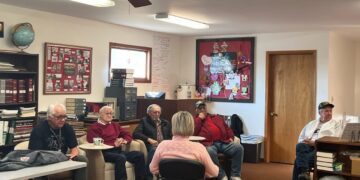The Federal Communications Commission just ruled that the federal government is exempt from a law that applies to businesses and individuals across the country.
The Hill reports:
The entire federal government is exempt from consumer protection laws that limit unwanted robocalls, the Federal Communications Commission decided in a ruling issued Tuesday night.
While the 1991 law bars businesses from making numerous autodialed or prerecorded calls to a person’s cellphone — and similar telemarketing calls to a person’s home phone — the FCC ruled that the law doesn’t apply to the federal government.
It also said that contractors working on the government’s behalf are exempt.
The ruling stemmed from a Supreme Court case earlier this year that found the law does not apply to the government because of sovereign immunity. The government, the FCC ruled, falls outside the law’s definition of a “person.”
“Indeed, had Congress wanted to subject the federal government to the TCPA, it easily could have done so by defining ‘person’ to include the federal government,” according to the ruling.
That means that contractors hired by members of Congress can robocall individuals to participate in town halls, government researchers can place autodialed calls to the cellphones of survey respondents, and contractors can make similar calls to offer information about social security.
This particular law is not terribly consequential, but the FCC's decision reveals once again the federal government's attitude towards the laws with which average Americans are forced to comply: "Laws apply to the people we rule, but not to us."
An Article V Convention of States can propose constitutional amendments that limit the power and jurisdiction of the federal government, reminding them that if they abuse their power, the people will simply take it away.







